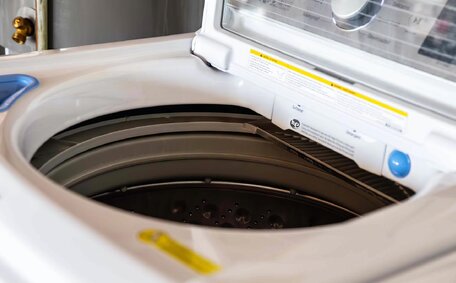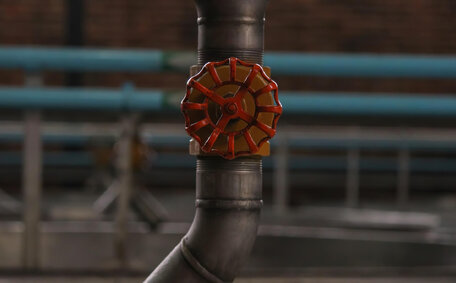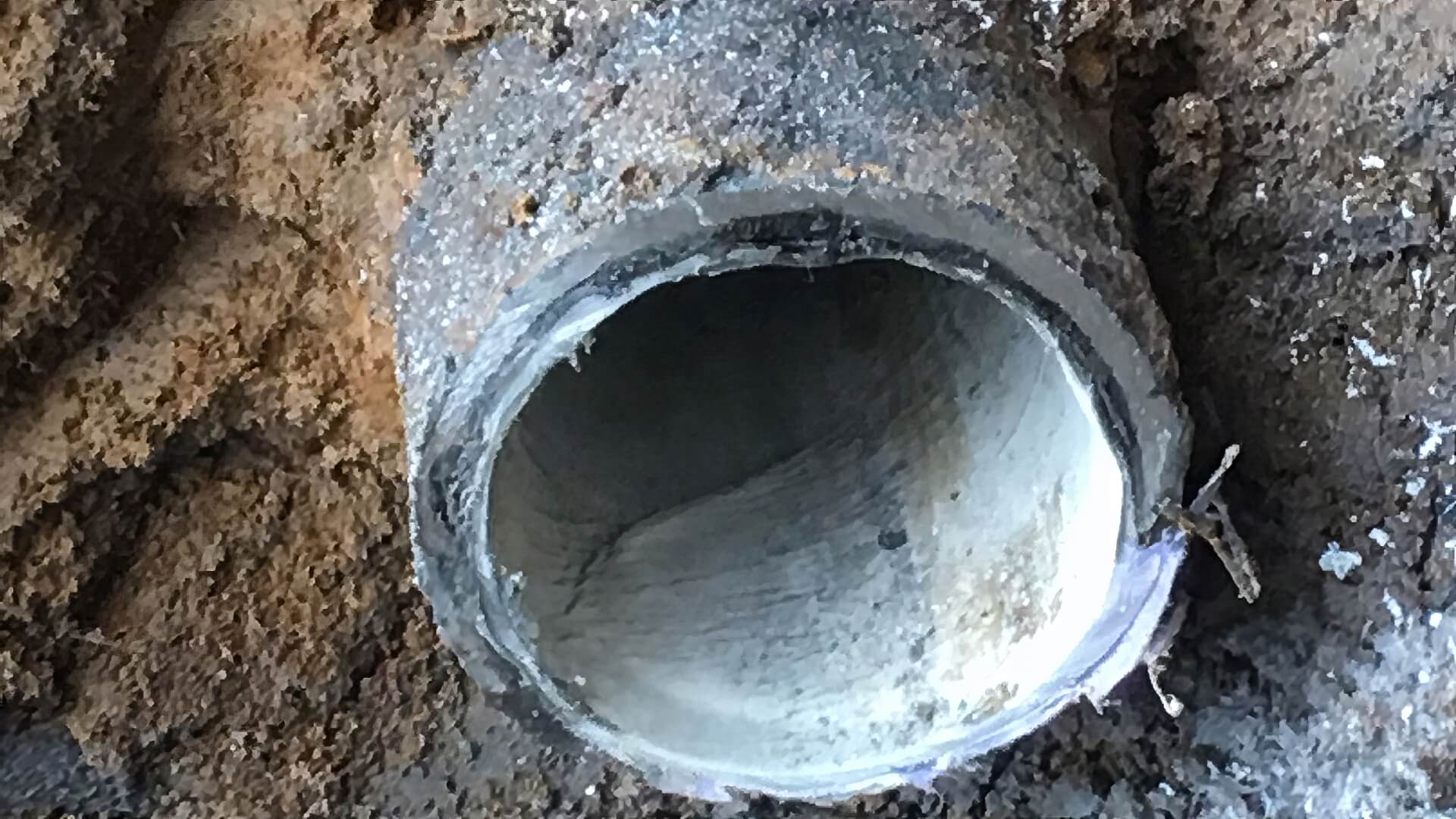Understanding Your Home’s Plumbing System
The plumbing system in your home is an intricate network that works continuously to supply fresh water and remove wastewater. At the heart of this system are supply lines, drains, fixtures like sinks and toilets, and appliances like water heaters and sump pumps.
Comprehending what each component does and how they interconnect is key to maintaining a smoothly running plumbing system.
Your home’s water starts at the main supply line, which links to either municipal sources or a private well. Supply lines branch off from there to distribute pressurised water throughout your home. Faucets, showerheads, toilets and appliances like washing machines tap into the supply lines to draw water on demand.
Wastewater then travels through your water drainage system which, left unchecked, can result in backups to the main sewer line or septic system. Crucial components like your sink, showers, tubs and toilets drain into horizontal pipes that flow downward through the floors and walls. These eventually connect to larger vertical stacks and then the main drain line exiting your home, which, if damaged, can reflect in increased water bills.
At the intersection of the water supply and drainage systems are critical fixtures like faucets, toilets and drains. Malfunctions in these areas can erupt into issues can disrupt your plumbing network, leading to excess expenditures of time and money. Regular inspection and maintenance of fixtures can prevent complications.
Appliances like your water heater, sump pumps, and ejector pumps support your plumbing heating cooling core operations and help prevent water buildup. Heating and cooling systems provide consistent hot water, and pumps prevent floods by removing excess water.
Hidden within your walls, the plumbing system is elaborate yet vital. Understanding the basic components of plumbing systems and how they connect allows you to spot problems early and comprehend why repairs are needed. With this foundational knowledge, you can help ensure your future plumbing operates smoothly for years before they escalate into more significant issues.
Performing Regular Maintenance Inspections
Conducting annual inspections of your plumbing system’s critical elements, such as pipes, joints, and valves, ensures optimal performance and reliability.
This proactive approach helps catch any potential leaks, corrosion, blockages or other strife which can develop into major problems.
During inspections, investigate any reduction in water flow as this may signify blockages within your pipes.
Consistently examine connections and valves for leaks, evidenced by rust or drips, to forestall water damage. Keep drain systems clear of harsh chemicals and check that toilets, faucets, and appliances function correctly without leaks.
Fluctuating weather conditions, like in Pennant Hills, can affect plumbing systems, so address issues early to avoid wear and damage. Annual inspections allow you to be proactive and tackle problems such as a frozen pipe before they become critical during the next cold snap. Using drain cleaners judiciously helps avert clogs and potential backups in your plumbing system.
Beyond preserving your plumbing system, engaging in regular plumbing maintenance can be a surefire way to save time money on repairs in the future. Preventative actions like replacing worn valve seals can vastly reduce the costs compared to fixing water damage post-burst pipe. Maintenance checks also grant you peace mind, ensuring your plumbing is in top-notch condition.
Proactive plumbing inspections protect both your home’s plumbing and your finances. If you spot any issues, call a professional like Pennant Hills Plumbing right away. We can troubleshoot problems and make repairs before small issues escalate into emergencies.
Checking for Leaks and Other Early Warning Signs
Catching leaks and other plumbing complications proactively is so vital; it’s crucial for avoiding major disasters. Dripping taps, leaky faucets, and running toilets can often be fixed by replacing inexpensive washers, so address these right away.
Remain alert for common warning signs like damp patches, mould, unpleasant drain odours, gurgling pipes, and non-stop toilet flushing.
Be aware of any decrease in water pressure, which may indicate obstructions such as a burst pipe. Check the main water shutoff valve regularly and turn off your water if you detect a leak or burst pipe.
Contact a skilled tradesperson as soon as possible for repairs in the affected area.
Conducting regular maintenance checks allows you to detect issues early. Its also wise proactive maintenance that can prevent frozen pipes in unheated areas.
By staying vigilant and addressing problems promptly, what do you do? You prevent extensive damages, high repair costs and health risks of plumbing disasters. If you notice any questionable signs, contact the experts at Pennant Hills Plumbing right away. We can troubleshoot issues and prevent them from escalating into emergencies.
Replacing Old or Damaged Parts
Over time, these small rubber components dry out and crack, leading to leaks and pressure loss. That constant dripping from a faucet is a sign the washers need replacing.
Look for deterioration of valve seats and O-rings around showerheads and taps. Worn toilet flappers and fill valves should also be swapped out. Replace these parts at the first sign of trouble - dont wait for them to completely fail.
Choose durable, high-quality replacement parts such as neoprene, silicone, or rubber. Avoid cheap plastic components that will quickly wear out again. Contact a professional plumber for part replacements to ensure its done properly.
Scheduled replacement of seals, washers, and valves prolongs your plumbing system’s lifespan. It also avoids the damages and high repair costs from leaks or pressure loss down the line. Be proactive about part replacement and your plumbing will keep working smoothly for years to come.
Replace these parts at theofessional plumber for part replacements to ensure its done properly.
Having a Professional Inspection Annually
An annual professional assessment of your plumbing can save time money by smartly averting potential crises and coes like small leaks and pipe corrosion, thus protecting your property from escalating undetected problems. Pennant Hills Plumbing uses advanced camera equipment to inspect every part of your plumbing system.
Our technicians assess water quality, pressure, pipe integrity, fixtures, and sewer line flow to ensure everything runs correctly. We ensure all components are functioning optimally, identifying any hidden issues early. Preventative maintenance saves money over emergency repairs down the line.
Don’t wait for plumbing problems to occur. Schedule your annual inspection with the experts at Pennant Hills Plumbing. Our precision equipment and experienced professionals help keep your plumbing running smoothly, avoiding a major plumbing leak, saving you money in the long run.
Practicing Proper Waste Disposal
Incorrect waste disposal can lead to damaged pipes, clog formation, and even burst pipes. Discover how avoid clogging your garbage disposal by only placing small amounts of organic food scraps into the unit.
Do not dispose of grease, oils, and various kitchen scraps like coffee grounds and pasta in the drains, as they can cause blockages.
Flush only toilet paper and human waste; avoid introducing wipes, hygiene products, and diapers into the plumbing to avert obstructions. These items can snag in pipes and can cause serious plumbing emergencies.
Following these guidelines for proper drain care involves taking steps to keep harmful chemicals like paints, solvents, pesticides, and automotive fluids out of your drains. Properly disposing of these substances can save you from future corrosion and contamination of waterways. Practise smart waste habits to protect your drains, ensuring they remain clear and flowing freely.
Insulating Exposed Pipes
Insulating exposed pipes is essential to prevent them from freezing and potentially bursting in cold conditions. In climates with sub-zero temperatures, if pipes freeze due to lack of insulation, they can expand and rupture, leading to costly water damage and disruption. Adequate pipe insulation can prevent costly repairs, saving both time and money.
Insulate pipes with foam, fibreglass, or rubber, particularly the exposed metal ones in cold areas like basements and garages. These are the most vulnerable to freezing. Insulate both hot and cold water pipes to maintain optimal temperature and flow.
Seal insulation tightly and secure it with waterproof tape. Apply heat tape to pipes that are susceptible to freezing.
Look for cracks or gaps in existing insulation and patch them up before winter hits. Insulation thickness should match your climate - up to 1 inch may be needed in very cold regions.
Stop exterior hose bibs from freezing by shutting off the water and draining the lines. After shutting off the water, protect outdoor faucets with an insulated hose bib cover. Consider replacing metal pipes with freeze-resistant PEX piping.
Taking time to properly insulate exposed plumbing before winter can avert catastrophic bursts and flooding. Call the team at Pennant Hills Plumbing if you need assistance insulating pipes or repairing any damage from frozen and burst lines this season.
Being Prepared for Emergencies
When a plumbing emergency strikes, being prepared with the right tools and knowledge can help minimise damage and disruption. Below are some essential measures for emergency preparedness:
- Familiarize yourself with your main water shutoff valve to quickly halt the water supply in emergencies. This can immediately stop flowing water from burst pipes or leaks, preventing further damage.
- Assemble an emergency plumbing kit containing a plunger, drain snake, wrench, torch, and materials for leak sealing. These items equip you to troubleshoot minor setbacks down your plumbing lines.
- Have the number for a 24/7 plumber like Pennant Hills Plumbing saved in your phone. We’re always available to provide prompt, professional assistance.
- Learn how to shut off water supply lines to specific fixtures like sinks, toilets and water heaters to isolate leaks.
- Keep spare pipes, fittings, washers and O-rings on hand so repairs can be made quickly.
- Ensure everyone in your household knows basic steps like where the water shutoff is located and how to use a plunger safely.
Advanced preparation and plumbing tips can significantly reduce the damages and disruption when an emergency strikes your home. We’re here to help you get through any crisis safely and efficiently.
Contacting for Emergencies
At Pennant Hills Plumbing, we are available 24/7 to provide prompt, professional assistance if you experience an emergency like a burst pipe, gas leak, sewer overflow or blocked drain.
Programme our emergency hotline number 1300 349 338 into your phone so it’s readily accessible when crisis hits. We have a team of licenced, experienced plumbers equipped to handle any plumbing emergency quickly and effectively.
Signs that require immediate emergency plumbing services include:
- Burst water pipes or major leaks
- No hot water
- Clogged drains or sewer backups
- Gas leaks
- Overflowing toilets
- Flooding
Don’t hesitate to call us if you notice any of these red flags. We’ll send a technician right away to assess the situation and make repairs. Acting quickly helps minimise property damages and health risks.
We know plumbing emergencies cause stress and disruption. Our expert team works efficiently to restore normal operation so you can get back to your routine. Trust Pennant Hills Plumbing for round-the-clock assistance when catastrophe strikes.
At Pennant Hills Plumbing, we are available 24/7 to provide prompt, professional assistance if you experience an emergency like a burst pipe, gas leak, sewer overflow or blocked drain.
Burst water pipes or major leaks





